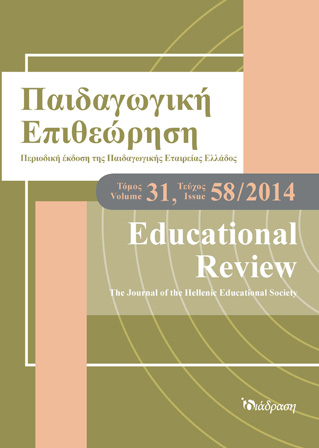Αντιλήψεις φοιτητών/τριών για τα θετικά και τα αρνητικά της αντιμετώπισης του στρες υπό το πρίσμα της θεωρίας των σταδίων αλλαγής
Main Article Content
Περίληψη
Undergraduates’ perceptions of the pros and cons of stress management based on the stages of change theory.
Kamtsios Spiridon
The aim of the study was the description and the definition of the stress management stages of change, as such the self-efficacy and the pros and cons for stress manage-ment during the stages. The study was held through questionnaires, all scales had acceptable levels of internal consistency (.62<α<.79). 405 undergraduates students participated. The results of the confirmatory factor analysis supported the factorial validity of the Decisional Balance Inventory and the three factor solution: pros of stress management (5 questions), pros of stress (4 questions) and cons of stress management (3 questions). Some of the students appeared to have no intention of man-aging their stress more effectively (comtemplation & precontemplation), some other intended to do so (action & preparation), while some other appeared to cope successfully with the stressful situations they experienced (termination & maintenance). Post hoc analyses showed that significant differences were found between self-efficacy, pros of stress management and some of the stages. The results of the study showed that the assessment of readiness to change could be of valuable support in designed stage –specific interventions in the area of stress management. Also emphasizing the pros for stress management behaviors and decreasing cons and improving skills for stress management can help people become more ready to change behaviors for stress management.
